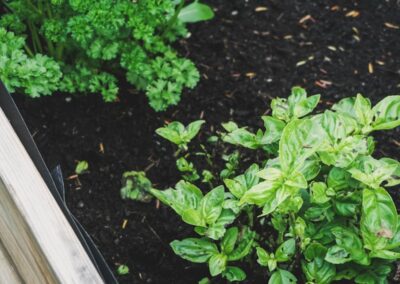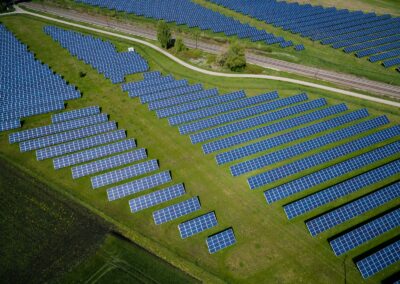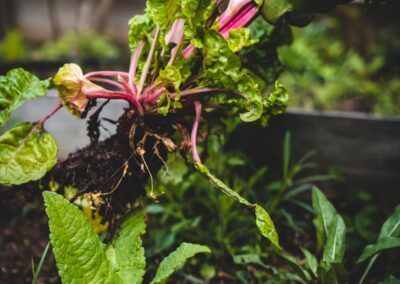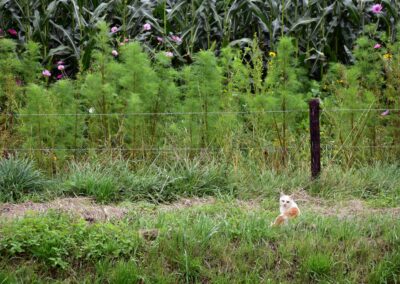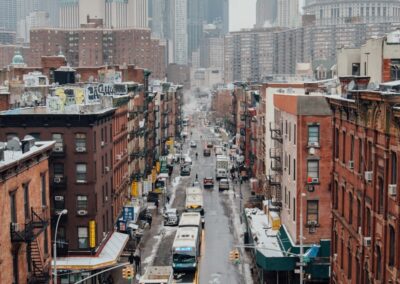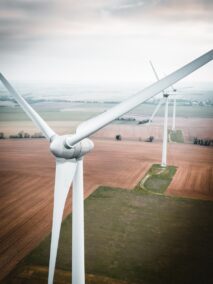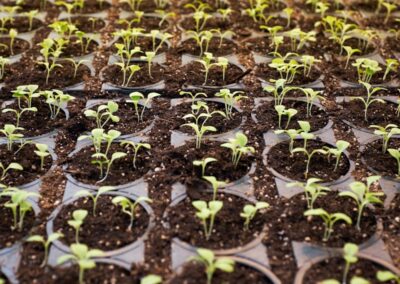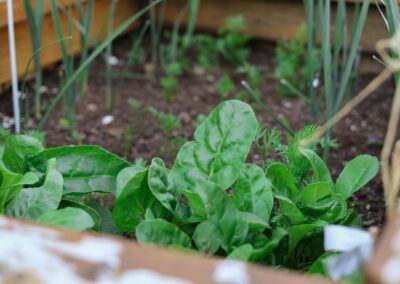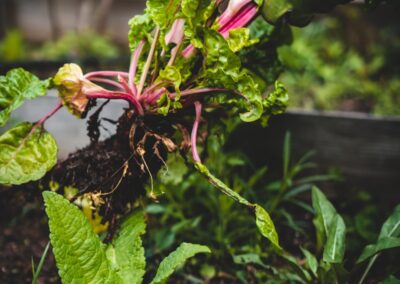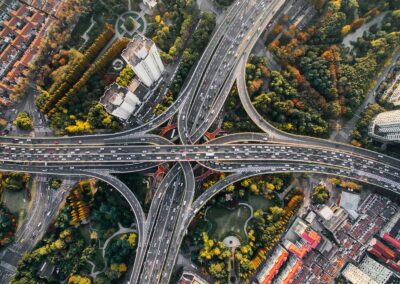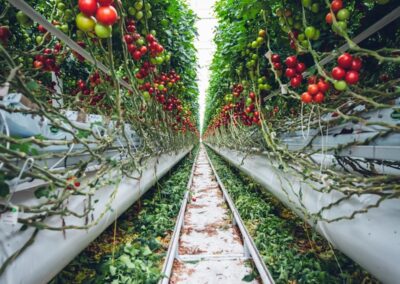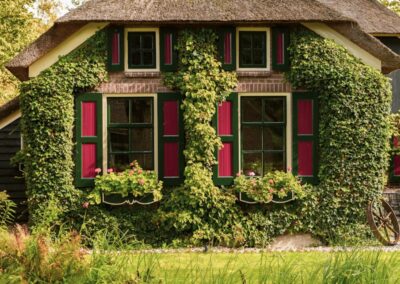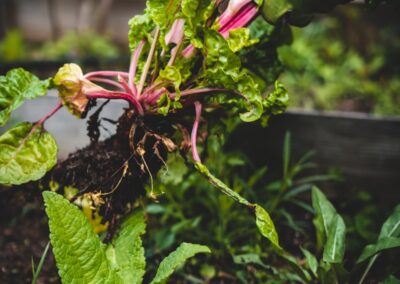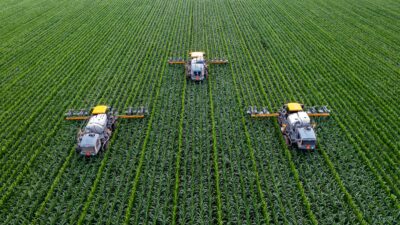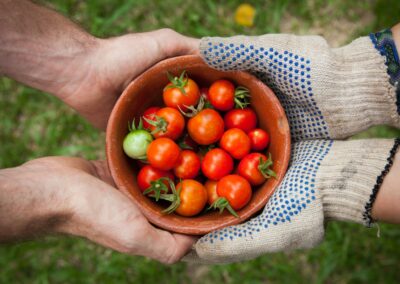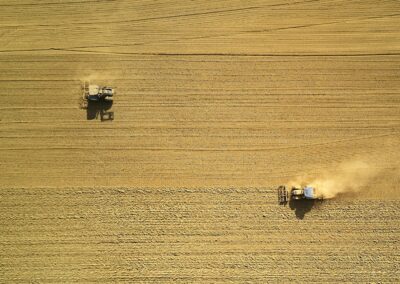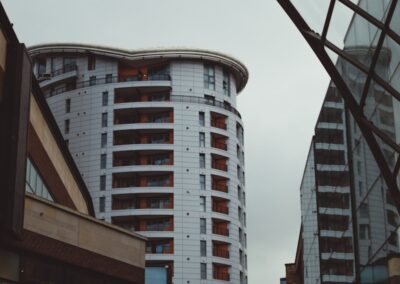Transforming Urban Spaces with Vertical Farming
Converting Unused Spaces into Productive Farms
Vertical farming is revolutionizing the way we think about urban sustainability by converting unused urban spaces into productive farms. This innovative approach to agriculture utilizes vertical structures to grow crops in stacked layers, making it possible to cultivate food in areas where traditional farming is not feasible. In bustling cities like Riyadh and Dubai, where land is scarce and expensive, vertical farming offers a practical solution. By repurposing vacant buildings and rooftops, vertical farming not only maximizes space utilization but also brings fresh, locally grown produce closer to consumers. This reduces the dependency on imported food and minimizes the environmental impact associated with long-distance transportation, commonly referred to as food miles.
Reducing Food Miles and Carbon Footprint
One of the significant benefits of vertical farming is its potential to reduce food miles, the distance food travels from farm to consumer. In Saudi Arabia and the UAE, where much of the food is imported, the concept of vertical farming presents a groundbreaking opportunity to cultivate crops locally. By producing food within urban centers, vertical farming cuts down on transportation needs, thereby reducing carbon emissions and the overall carbon footprint of food production. This sustainable approach aligns with the global push towards reducing greenhouse gas emissions and combating climate change. Furthermore, locally grown food tends to be fresher and more nutritious, enhancing the health and well-being of urban populations in Riyadh and Dubai.
Supporting Local Economies
Vertical farming also plays a crucial role in supporting local economies. By establishing urban farms, cities can create new job opportunities in agriculture, technology, and management sectors. This not only boosts local employment but also fosters innovation and entrepreneurship. For example, entrepreneurs in Dubai can develop businesses around vertical farming technologies, while agricultural experts in Riyadh can offer consulting services to optimize urban farming practices. Additionally, local governments can support these initiatives through policies and incentives, further integrating vertical farming into the urban economic fabric. The result is a resilient local economy that benefits from sustainable food production and reduced dependency on external food sources.
Enhancing Urban Food Security
In rapidly growing urban areas, food security is a pressing concern. Vertical farming addresses this challenge by providing a reliable and scalable method of food production within city limits. In regions like the UAE and Saudi Arabia, where extreme weather conditions and limited arable land pose significant agricultural challenges, vertical farming offers a viable alternative. By leveraging advanced technologies such as Artificial Intelligence (AI) and blockchain, vertical farms can optimize growing conditions and ensure consistent crop yields. This enhances food security by creating a stable supply of fresh produce, even in the face of external disruptions such as global supply chain issues or climate-related events.
Leveraging Advanced Technologies
The integration of advanced technologies is a cornerstone of vertical farming’s success. AI and blockchain play pivotal roles in monitoring and managing vertical farms. AI systems analyze data to optimize light, water, and nutrient delivery, ensuring that crops grow in the most efficient conditions possible. Blockchain technology enhances transparency and traceability in the food supply chain, providing consumers with information about the origin and quality of their produce. In cities like Riyadh and Dubai, which are at the forefront of technological innovation, the adoption of these technologies in vertical farming not only supports sustainable agriculture but also aligns with broader smart city initiatives.
Driving Sustainable Urban Development
Vertical farming contributes to sustainable urban development by integrating agriculture into the urban landscape. This approach not only reduces the environmental impact of food production but also enhances the quality of urban life. Green spaces created by vertical farms can improve air quality, reduce the urban heat island effect, and provide recreational and educational opportunities for residents. In Dubai, for example, integrating vertical farming into urban planning can transform the city into a model of sustainable living. Similarly, in Riyadh, vertical farms can be incorporated into new developments to promote green living and sustainability. This holistic approach to urban development ensures that cities can grow sustainably, meeting the needs of their residents without compromising the environment.
#VerticalFarming #UrbanSustainability #LocalEconomies #FoodMiles #UrbanAgriculture #SaudiArabia #UAE #Riyadh #Dubai #FoodSecurity


